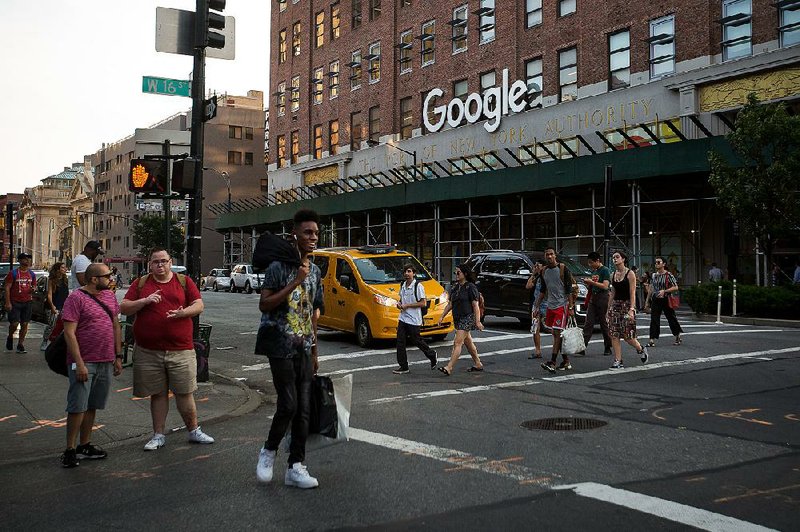Google will comply with Europe's demands to change the way the company runs its shopping search service, bowing to regulatory pressure to avoid more fines.
The Alphabet Inc. unit faced a Tuesday deadline to tell the European Union how it planned to follow an order to stop discriminating against rival shopping search services in the region. A spokesman for Google said it was sharing that plan with regulators before the deadline but declined to comment further.
The EU fined Google a record $2.7 billion in late June for breaking antitrust rules by skewing its general search results to unfairly favor its own shopping service over rival sites. The company had 60 days to propose how it would "stop its illegal content" and an additional 30 days to make changes to how it displays shopping results when users search for products. Those changes need to be put in place by Sept. 28 or the EU could fine the company 5 percent of revenue for each day it fails to comply.
"The obligation to comply is fully Google's responsibility," the European Commission, the EU's executive arm, said in an emailed statement without elaborating on what the company must do to comply.
The onus is on Google to find a solution that satisfies regulators, who have learned from past battles with Microsoft Corp. and Intel Corp.
Microsoft's failure to obey a 2004 antitrust order and charge lower fees for software licenses led to a $1 billion fine four years later. Microsoft argued that its prices were fair and that it shouldn't have been compelled to give away patented innovation.
Intel's lawyer said in 2009 that he was "mystified" as to what regulators wanted the company to do to comply with an order to halt anti-competitive rebates for chip sales to computer makers. Intel may receive clarity when the EU's top court rules Sept. 6 on the company's legal challenge to a $1.3 billion fine.
Google has the option of challenging the fine and the antitrust order to the EU courts, which can take years to reach a final decision. Next week's Intel ruling will come eight years after the EU ordered the fine. If Google challenged the EU's decision, it would have to comply with the order ahead of any ruling from EU judges.
The EU now has a month to check whether Google's planned changes will fit the bill. Regulators are also expected to levy fines in separate investigations into Google's Android mobile phone software -- possibly as soon as next month -- and the AdSense advertising service. Margrethe Vestager, the EU's antitrust chief, has also threatened investigations on travel or map services.
Regulators sought technical help in June to evaluate how Google complies with the order, setting a budget of up to $12 million to pay for experts in search engine optimization and search engine marketing.
The Initiative for a Competitive Online Marketplace, a coalition of technology and media companies, called for Google's offer to be made public and for the EU to publish details of how the company breached antitrust law.
"These affect everyone in the online and mobile worlds so they must be made public for evaluation," Michael Weber, the group's chairman, said in a blog posting.
Business on 08/30/2017
